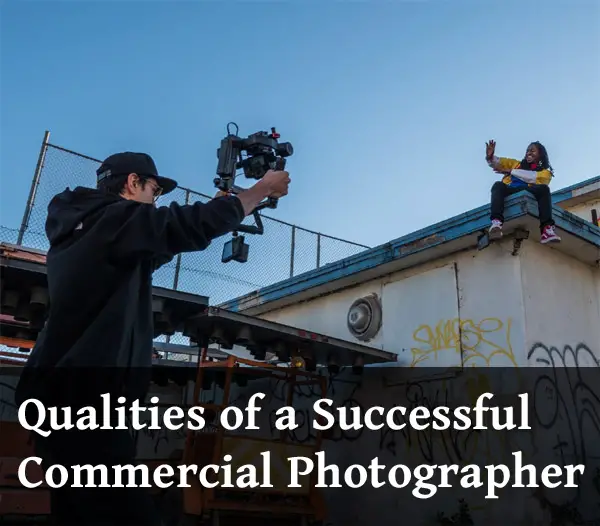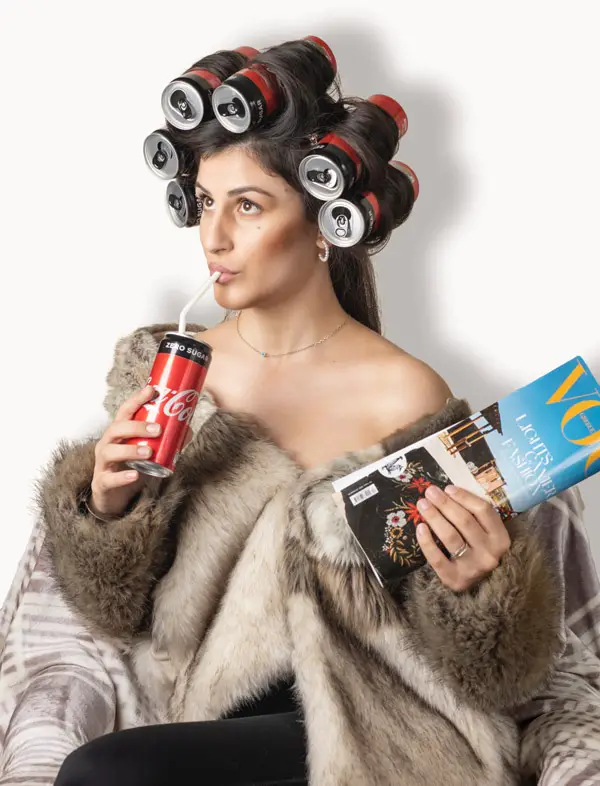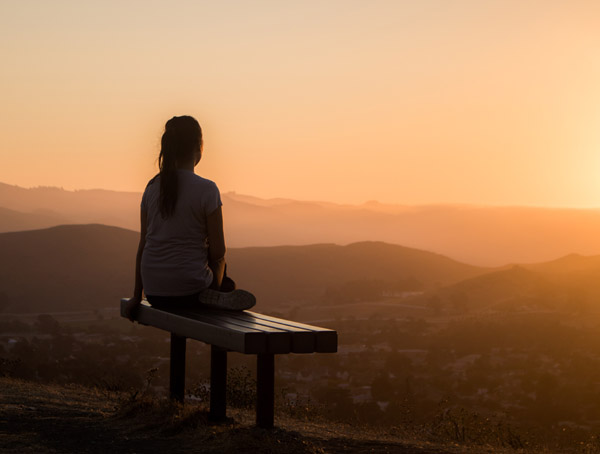So, you want to become a commercial photographer?

This is a great choice for a creative career, as it gives you many opportunities for self-expression and meeting new people. Besides, as you advance on your professional path, you might get to travel around for work, which is always exciting.
By the way, commercial photographers are also in demand. According to the Bureau of Labor Statistics, this profession has a projected growth of 17% in the next eight to ten years. However, this also means that you might face harsh competition on your way to the professional Olymp.
To beat your rivals, skills aren’t enough. Sometimes, your success depends on personal qualities that help you build connections and find job opportunities.
What are these qualities for commercial photographers?
Generally, to be a successful commercial photographer, one needs to be a great communicator, think outside the box, be well organized, patient, detail oriented, honest and good at finding opportunities.
Let’s take a look at these in detail.
1. Great Communicator
Every photographer knows that the process behind the photo shoot is about working with a model, helping them find the right pose and relax. That’s why you need to be good at communicating your message, making sure everyone understands your intentions and point of view.

Apart from that, being a good communicator helps you find the right connections and build relationships with clients. A solid network helps lay a successful foundation for every career, and commercial photography is no exception. This way, you can also find gigs at the beginning of your career – word-of-mouth marketing works perfectly in this case, too.
Now, what if you’re a bit shy, and communicating with people is not your strongest suit? Can you learn it?
Of course! Actually, if you’re an introvert, you are good at listening and processing information, which is the first step to becoming a great conversationalist.
If you feel like you can’t find the right words to express yourself or too many thoughts are rushing through your head, try to speak slowly and break down your message into meaningful subsections. This way, you’ll be able to deliver a consistent, logical argument.
2. Organizational Wiz
A successful photographer is always well-organized, and we don’t just mean that you need to keep all your devices polished, cleaned, and in order. Your professional life should also follow a specific structure. Otherwise, you’ll end up missing deadlines and letting your clients down, which will affect your professional growth.
Luckily, just as you can become a good communicator, you can also work on developing your organizational skills. Here are some tips:
- Create a daily, weekly, and monthly schedule. This way, it will be easier for you to track all the deadlines.
- Manage your time. Break down your work week into days when you are out working on a photo shoot and when you work on editing photos. This will help you have a mess-free work week.
- Make a habit of creating extra storage. The most heartbreaking thing that can happen is losing all your work to a malfunctioning device or software. So, create a backup for all work files.
Working on self-organization can also help you avoid professional burnout, which often happens in people with creative jobs. It allows you to plan your tasks and workdays without overworking yourself.
3. Thinking Outside the Box
Every photographer (much like any other creative mind) wants their works to be remembered. However, creativity is hardly enough to achieve it; you need to see beyond already existing concepts to become successful and popular (if it’s your goal, of course).
Of course, people aren’t born with the ability to think outside the box. Think of it as a muscle in your brain – you can train it successfully with a few exercises.
First, try to view one concept or situation from different points of view. The situation doesn’t have to be photography-related – it can’t be anything from your everyday life. Considering and accepting several points of view makes your mind more flexible and helps you find unconventional solutions to problems.
One more exercise which can help you see outside the box is free writing. According to Indeed, this activity helps generate new ideas as it lets your thoughts flow undisturbed. Apart from that, it’s a great way to practice being confident if you feel you’re not a good communicator.
4. Fluent in Foreign Languages
As a photographer, you’ll have to learn continuously. The market is constantly growing, new editing software appears along with new techniques and trends. You need to be aware of it all, but did you also know that knowing foreign languages can impact your career the same way your hard skills can?
How?
First and foremost, it opens your mind. For instance, when you learn Spanish, you also get to know the culture of the people speaking this language. As you learn how people in different countries communicate, you also find out what guides them, their customs and traditions, helping you think outside the box.
By the way, knowing about as many cultures and traditions as possible helps you avoid cultural appropriation in your own works, keeping you away from negative publicity. In other words, learning foreign languages can prevent you from unknowingly making mistakes that can hurt your career.
Finally, the more languages you know, the more gigs will come your way! You will get an opportunity to travel around the world for work, build connections, and expand your resume with interesting projects.
5. Opportunist
Interestingly enough, this quality is often considered as something negative when, in reality, it simply describes a person that knows when a good opportunity comes their way and can recognize and accept it.
We mentioned in the introduction that commercial photography is a pretty competitive field. You might have to fight many rivals on your way to success, especially at the beginning of your career, when your resume is not that impressive and you need as many projects as possible to grow it.
So, how do you recognize a good opportunity from a bad one?
The offer you get should answer your needs at the time. For instance, you need experience in portraiture, and you’re offered a project where you can work on it. However, the proposed offer should be as clear as possible, including the remuneration. This way, you’ll know that you’re not being scammed.
6. Patient
Every job that requires constant contact with people can be pretty stressful. If we talk about photography, you will have to meet clients with different backgrounds, habits, and levels of emotional maturity. And we’re not going to lie – you will meet people on your professional path who will test you, but it’s important to remain patient to not harm your career.
What if your character is too explosive to deal with people’s negativity?
Psychologists have found that patience is not always about character. According to Sarah A. Schnitker, Ph.D., many other predictors determine our ability to be patient, such as our habits, the ability to regulate emotions, and our expectations.
So, when meeting a new client or attending a photo shoot with someone who’s notoriously difficult to handle, don’t set your expectations too high and try to focus on your work rather than dealing with their negativity. Also, it helps to realize that people behave the way they do because of different life events that formed their perception of the world. Try to accept that, but don’t let it get to you.
7. Detail-Oriented
This personal quality is closely related to being well-organized. As a commercial photographer, you’ll need attention to detail in everything you do, from organizing the right lighting for the photo shoot to understanding the storytelling part your photos should represent. The composition and the emotions it conveys also require being detail-oriented.
Can you learn attention to detail?
Absolutely, you just have to work on your observation and listening skills. Observing your environment, watching people’s actions, analyzing them, listening to what they have to say – all of this can help you become more focused.

Also, to be able to pay attention to details, you need to let your brain rest. So, don’t overwork yourself, take regular breaks, meditate, in other words, do anything to switch your mind off and let it calm down. This way, you’ll expand its capacity, and your memory will improve.
8. Honest
Finally, if you want to achieve success as a commercial photographer, you’ll need to be honest.
Indeed, there will be situations where you’d rather keep silent than say how you really feel, and, in some cases, you’d be right. However, if you strongly disagree with something or what you’re being offered does not fit in your value system, then you should be honest with yourself and with people.
You’ll also have situations with clients where you will disagree with their opinion about the project, but you should always stay true to your vision. If you have a clear understanding of what your career path should be, honesty is one of the only things that won’t let you deviate from it, as you’ll stand by what you believe in. This quality also differentiates a true professional from an average one.
Over to You
So, as you can see, a psychological portrait of a successful commercial photographer is pretty clear. You need to be good at communication and self-organization, be able to think outside the box, preferably be fluent in other languages, know how to take the right opportunity, be patient, detail-oriented, and honest.
Luckily, all these qualities are acquired rather than inborn. Hopefully, the tips we gave in our article will help you work on these personal qualities and achieve great success in your commercial photography career.
Below is an interesting video on landing your first commercial photography gig:
Interested in more articles like this? Click here to learn tricks from commercial photographers.









